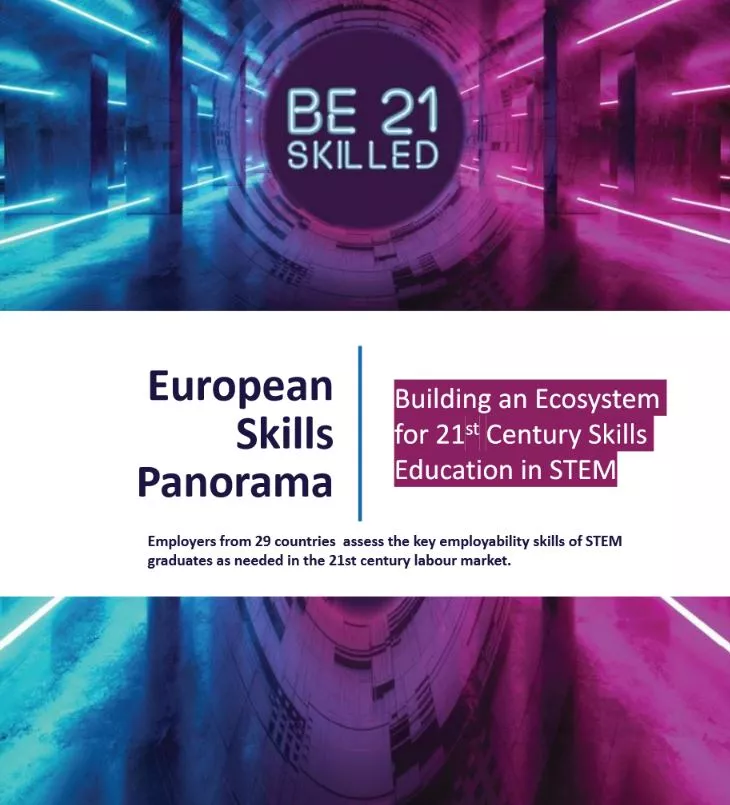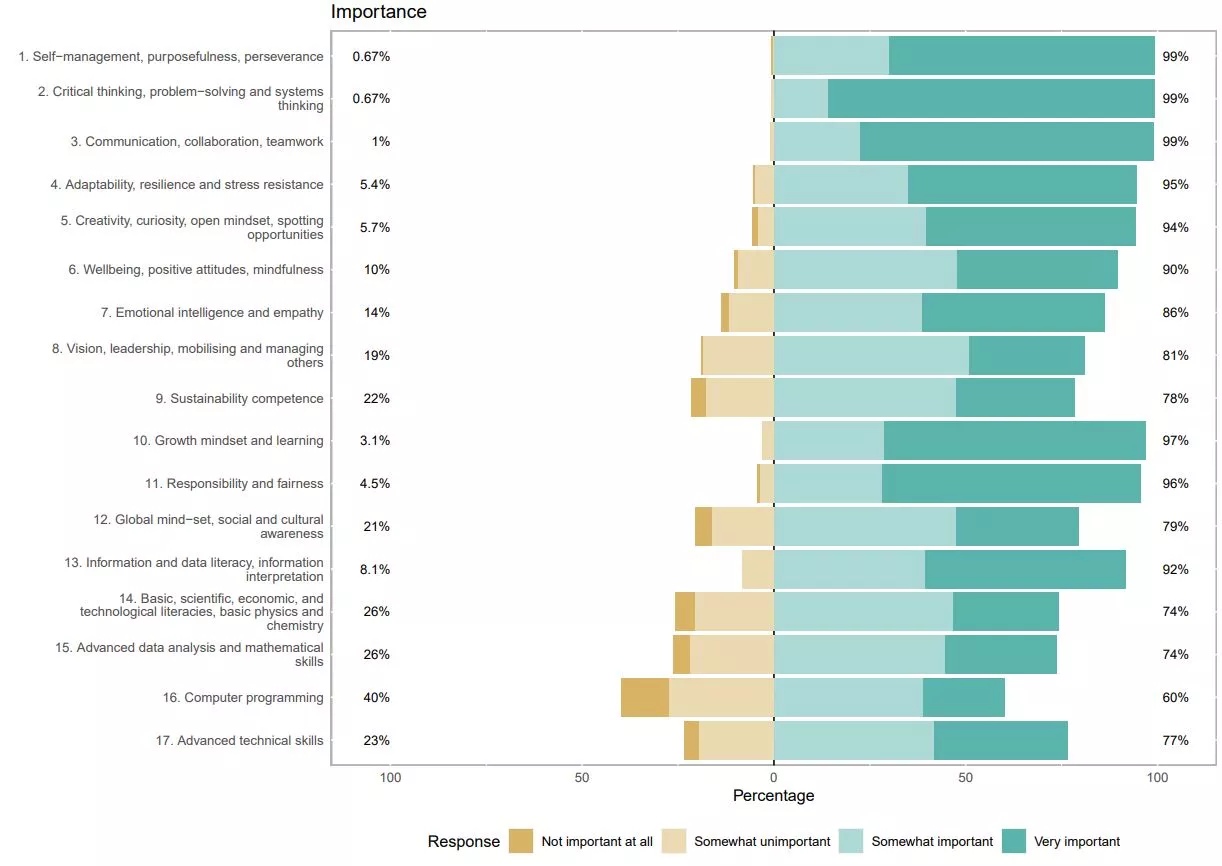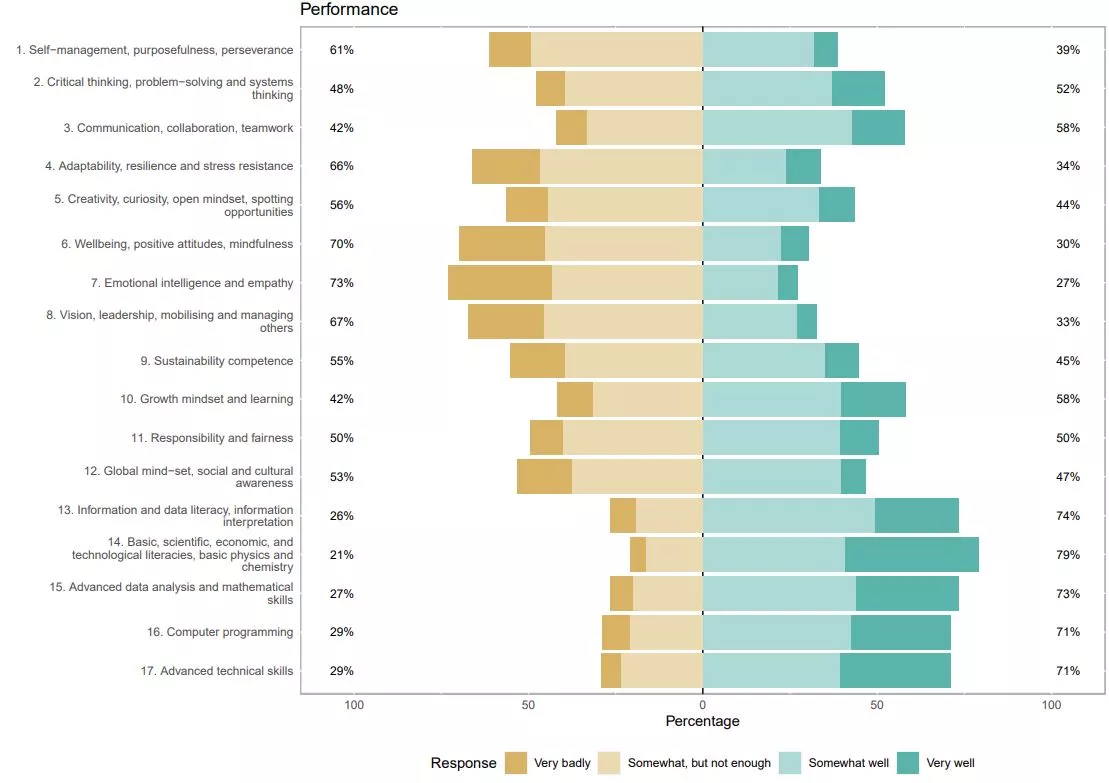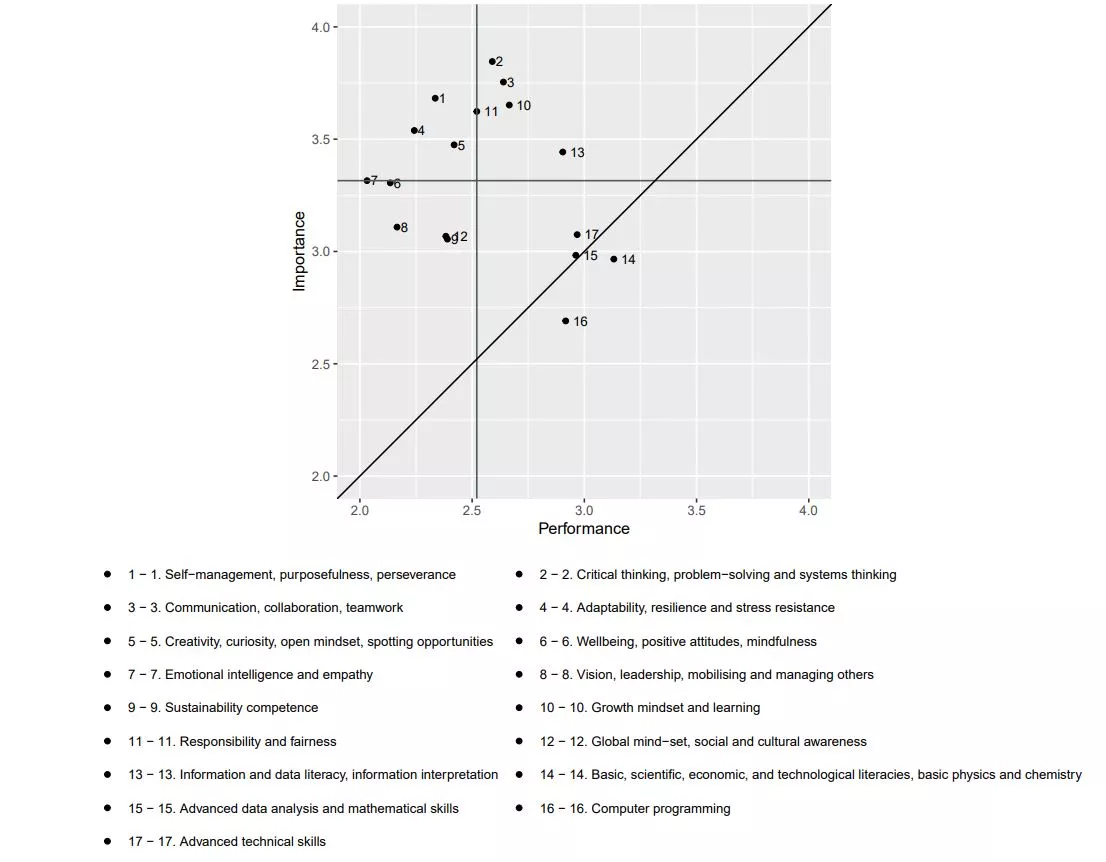European Skills Panorama: Which are the most demanded 21st century skills?
Dear EPALE community,
Let me share with you a new report that answers to the question - Which are the most demanded 21st century skills? The report focuses on skills demanded for STEM graduates, but is relevant for graduates of all fields of study.
The Report is based on the research that included a meta-analysis of recent international future skills frameworks and employer survey in which 300 employers from 29 countries participated.

The list of 21st century skills used in the employer survey was developed by conducting a meta-analysis of ten recent (published in 2018 – 2022) and research-based skills frameworks describing the future and labour market-relevant skills. All the selected skills frameworks have been developed by international organisations, including by the European Commission and EU agencies, OECD, World Economic Forum and McKinsey & Company.
300 employers from 29 countries participated in evaluating, which of the skills included in the list are the most important for STEM graduates in recruitment process. The employers also evaluated the performance of universities in developing these skills. Thus, priority action areas for updating university curriculum were obtained.
Key results
- The employers particularly highly value the self-management, social, emotional, attitudinal and cognitive skills.
- Considering very positive evaluations of employers, in could be concluded that all 21st century skills included in the list are very important in the labour market and are highly valued for STEM graduates.
- Employers are unanimous about the extreme importance of self-management skills, critical thinking and problem-solving skills, as well as communication and teamwork skills. Other most highly valued skills are growth mindset and learning skill, responsibility, ability to adapt and withstand stress, creativity skills, information and data literacy skill, positive attitude and mindfulness, emotional intelligence and leadership skills.

- When it comes to the performance of universities in developing key employability skills, the skills that received the highest employer ratings in the importance assessment are relatively more difficult to acquire at the European universities. Employers are the most sceptical about universities' ability to develop emotional intelligence, positive attitudes and mindfulness, leadership, adaptability and resilience, self-management, creativity, sustainability competence, global mind-set and responsibility skills.

- The importance – performance analysis helped to identify the skill areas which require the immediate attention and highest prioritization when it comes to preparing STEM graduates for the labour market. These are:
- Self-management, purposefulness, perseverance
- Adaptability, resilience and stress resistance
- Creativity, curiosity, open mindset, spotting opportunities
- Responsibility and fairness
- Emotional intelligence and empathy
- Wellbeing, positive attitudes and mindfulness

These results point out to the challenge that universities are facing: how to ensure both acquisition of technical skills in demand and promotion of student personal growth. This could be done by helping students to self-reflect, getting ready for changing circumstances and addressing unordinary situations, by looking for creative solutions and cooperating with others. The tools for developing 21st century skills may not only be included in the curriculum and teaching methodology, but also in the overall ecosystem of the university, in which the personal growth of students is promoted, including the environment of the university, the overall support system and extracurricular opportunities.
The Report was elaborated by myself, Inga Lapina, Līga Kamola, Elīna Gaile-Sarkane, and edited by Orla Casey. A great support in distributing the questionnaire was provided by the The Accreditation Council for Entrepreneurial and Engaged Universities (ACEEU), The Latvian Information and Communications Technology Association - LIKTA, Latvian Electrical Engineering and Electronics Industry Association (LETERA), Latvian Association of LifeScience Industry (LAKIFA), MASOC - Association of Mechanical Engineering and Metalworking Industries of Latvia, LEEA and Employers’ Confederation of Latvia.
The full Report is available though this link: https://be21skilled.eu/skills-panorama/




